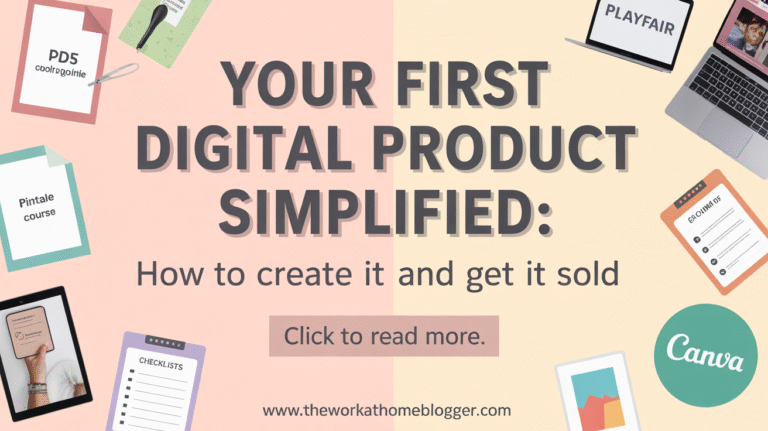In this blog post, I will be discussing what are the LLC business tips aspiring entrepreneurs needs to know.
Starting a business is exciting—but let’s be real, it can also be overwhelming, especially when legal terms like “LLC” start flying around. If you’re ready to take your side hustle seriously and protect your brand, forming an LLC (Limited Liability Company) is a smart, affordable first step. Below are 15 LLC business tips to help you build your business the right way from day one. These aren’t just random tips—they’re foundational steps that can save you thousands of dollars, hours of stress, and potentially your entire business.
DISCLAIMER: THIS BLOG POST IS SOLELY INFORMATIONAL.
I AM NOT A LEGAL EXPERT OR TAX PROFESSIONAL. PLEASE SEEK ADVICE FROM A LEGAL EXPERT OR TAX PROFESSIONAL FOR ANY HELP OR ASSISTANCE NEEDED FOR YOUR LLC OR TAX PURPOSES.
Key Takeaways
- Your LLC protects your personal assets—but only if you run it properly.
Mixing personal and business finances or skipping contracts can weaken your legal protection. - Legal templates aren’t optional—they’re essential.
Don’t wait for a client dispute to get serious about your contracts. Use templates from a trusted source like A Self Guru from day one. - Your business is only as strong as your foundation.
Set up your bank account, email, and bookkeeping early. These boring steps = long-term success. - LLCs still owe taxes—even if you’re just starting out.
Know your quarterly tax deadlines, and don’t wait until April to figure it out. - Scaling smart means planning ahead.
Don’t jump into hiring or spending until you’ve built systems and understand your profit margins.
15 LLC Business Tips Every New Aspiring Entrepreneurs Need to Know

1. Choose the Right Business Name
Your business name isn’t just a vibe—it’s a legal entity. Make sure it’s unique in your state, not trademarked, and has an available domain name. Search your Secretary of State website and USPTO.gov before falling in love with a name. This is a step many skip and later regret when faced with rebranding or legal takedown notices.
2. File Your LLC with the State
To officially create an LLC, you’ll need to file Articles of Organization with your state and pay a filing fee. This protects your personal assets and gives your business a legal identity. Don’t worry—you don’t need a lawyer to do this. Most states offer a DIY online portal.
3. Get an EIN (Employer Identification Number)
Think of it as a Social Security number for your biz. It’s free to get through the IRS website and is required for things like opening a bank account, filing taxes, or hiring employees. Even if you’re a solopreneur with no hiring plans, it makes your business look legit and protects your SSN.
4. Use Legal Templates to Protect Your Business
Contracts and policies are not just for big corporations. If you have a website, sell services, or work with clients, you need templates like:
- Privacy Policy
- Website Disclaimer
- Terms & Conditions
- Independent Contractor Agreement
- Client Service Agreement
Tip: Use lawyer-drafted templates like the ones from A Self Guru to protect your biz without hiring an attorney. These templates can help you avoid messy disputes, chargebacks, and legal threats from clients or copycats.
5. Open a Business Bank Account
Mixing business and personal money is a no-go. A business bank account keeps your finances clean and protects your LLC status. It also makes accounting, taxes, and getting funding easier. Some banks even offer perks like cashback or waived fees for LLC owners.
6. Get a Business Email and Domain
Even if you’re operating on Etsy, Payhip, or Instagram, a branded email and domain build trust. It shows you’re not just playing business—you ARE the business. Clients take you more seriously, and you’ll look more professional on invoices, your website, and social media.
7. Understand Your Tax Obligations
LLCs are pass-through entities, but you still need to pay quarterly estimated taxes and possibly state/local business taxes. Learn what you owe and when. Consider using tax software or consulting with a tax preparer familiar with small business or self-employment taxes.
8. Set Up a Simple Bookkeeping System
Use tools like Wave, QuickBooks, or even Google Sheets to track income and expenses from the start. This will save you stress at tax time. Bonus: Good records help if you ever want to apply for a loan, grant, or sell your business.
9. Check for Business Licenses and Permits
Some states and cities require a general business license or home-based business permit, even if you’re online-only. Don’t skip this step. Fines can be hefty, and you don’t want to delay operations once you’re up and running.
10. Create a Client Contract or Service Agreement
Clearly outline your terms, deliverables, payments, refunds, and late fees. This will set expectations and protect both you and your client. It will also prevent scope creep, ghosting, and chargebacks. Templates from A Self Guru make this step painless.
11. Add Website Legal Pages
At minimum, your site needs:
- Privacy Policy (if you collect emails or cookies)
- Terms & Conditions
- Disclaimer (if you share advice, affiliate links, etc.)
Legal pages signal trust and transparency. They also help protect you from liability and keep your website compliant with global privacy laws like GDPR and CCPA.
12. Start an Emergency Fund
Your LLC can protect your personal assets, but it won’t cover you if cash flow stops. Build a small reserve for taxes, slow seasons, or unexpected fees. Even $500 tucked away can give you peace of mind and flexibility.
13. Consider a Trademark
Once your brand starts growing, consider trademarking your logo or business name to prevent copycats and protect your intellectual property. Trademarks give you exclusive rights and can boost the valuation of your business if you ever plan to sell.
14. Get Business Insurance
Depending on your industry, general liability or professional liability insurance can protect you if something goes wrong. It’s especially helpful if you meet clients in person, ship products, or offer advice that could result in claims.
15. Learn How to Scale Smart
Don’t rush to hire a VA or buy every tool on day one. Focus on essentials, automation, and systems. Document your processes, invest in the tools that save you time, and only outsource when you’re ready. Scaling smart means growing sustainably.
Final Thoughts
Starting an LLC isn’t as scary or expensive as it sounds—especially when you have the right tools. Legal templates like those from A Self Guru make it easy to protect yourself, your clients, and your future profits. Don’t wait until something goes wrong. Set your business up for success from day one.
Want to skip the legal guesswork? Grab the exact templates I use and trust from A Self Guru. They’re affordable, beginner-friendly, and written by a real business lawyer who gets online entrepreneurship.
→ Click here to explore A Self Guru’s Legal Templates
Build your business like you mean it. Protect your LLC like a pro.
FAQ: LLC Tips for New Business Owners
Q: Do I need a lawyer to start an LLC?
A: No. Most states let you file online through their official websites. However, you should invest in legal templates to cover contracts, policies, and service agreements.
Q: What’s the difference between an EIN and LLC registration?
A: Your LLC is your business’s legal structure (filed with the state). An EIN is like a social security number for your business (issued by the IRS). You need both.
Q: Can I run an LLC from home?
A: Yes! Many service-based and online businesses operate from home. Just check if your city or county requires a home-based business permit.
Q: When do I need business insurance?
A: If you meet clients, give professional advice, or sell physical/digital products, consider liability insurance. It adds a layer of protection beyond your LLC.
Q: What legal templates do I really need to start?
A: At minimum: Privacy Policy, Website Disclaimer, Terms & Conditions, and a Service Agreement or Contract. Amira’s A Self Guru bundle covers all of these affordably.







